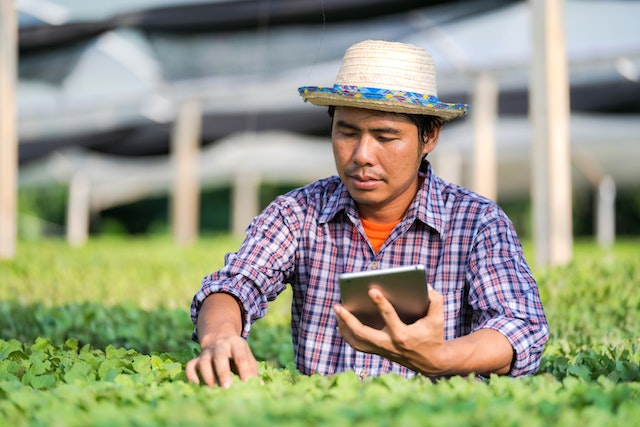The Food and Agriculture Organisation (FAO) of the United Nations (UN) recently developed a new Science and Innovation Strategy. During its 170th Session, the FAO Council ratified this Strategy to reinforce the uptake of science and innovation in FAO’s technical interventions and normative guidance. FAO perceives the Strategy as a cornerstone in implementing the FAO Strategic Framework 2022-31 and FAO’s new Strategy on Climate Change.
The focus of the Strategy is oriented towards FAO Members to support them in terms of knowledge, partnerships and funding resources. It will seek to speed up the fulfilment of the 2030 Agenda in transforming agri-food systems. In this light, better production, better nutrition, a better environment, and a better life, while leaving no one behind will stem from this shift.
“We urgently need innovation in technologies, policies, business models and mindsets.” Pinpointed Qu Dongyu, FAO Director-General.
Indeed, in a period disturbed by climate change, the impact of the COVID-19 pandemic, economic decline and conflicts, it is evident that we must frame a different trajectory, especially by using state-of-art science and innovation.
A commitment to developing science and innovation
As a facilitator of intergovernmental processes, FAO is key to nurturing neutral debates and scientific analysis for cross-country exchanges and serves as an authoritative source of guidance regarding norms and standards. It also empowers policymakers through its synthesised work of scientific knowledge.
Globally, there is an uneven global distribution of scientific capacity and access to knowledge. Current levels and patterns of science, technology and innovation (STI) utilisation are inappropriate in view of the needed agri-food system transformations, especially in low- and middle-income countries. Scientific outcomes may be hindered by a lack of data, uncertainties, and contrasting results, and can also be contested. Moreover, the evidence on current and emergent agri-food systems STI must be exhaustively harnessed to satisfy the several objectives leading to efficient, inclusive, resilient and sustainable agri-food systems.
To reverse this tendency and, more largely, eradicate hunger and malnutrition worldwide, FAO endeavours to leverage the full potential of science and innovation. In that sense, the Strategy is articulated around three pillars:
- Strengthening science and evidence-based decision-making to enhance agri-food systems knowledge and evidence, and disseminate it at multiple levels, utilising interoperable, multi-stakeholder platforms such as the International Platform for Digital Food and Agriculture. Its insights will encompass data on benefits, risks, trade-offs and potential for adaptation to different contexts. FAO will reinforce its cooperation with agri-food research organisations, such as CGIAR and AIRCA.
- Supporting innovation and technology at regional and country levels to improve the accessibility, uptake, inclusiveness, and affordability of innovations and technologies while proposing context-specific solutions. For instance, small-scale producers, women, and youth will be positioned at the core of the support.
- Serving Members better by reinforcing FAO’s capacities to develop the exchange of information and experiences on science and innovation. Improvement in science communication will be pursued to strengthen public awareness and support science- and evidence-based decision-making.
The approach followed by FAO
FAO drew up seven guiding principles to ensure harnessing science and technology in adequacy with the interdependent principles of the 2030 Agenda: People, Planet, Prosperity, Peace, and Partnership: 1) Rights-based and people-centred, 2) Gender-equal, 3) Evidence-based, 4) Needs-driven, 5) Sustainability-aligned, 6) Risk-informed, and 7) Ethics-based. These principles will guide, congruently with the Agenda 2030, all science and innovation-related work of the United Nations.
All actions and initiatives enshrined in the three pillars will be stimulated by two multi-level cross-cutting enablers: transformative partnerships and innovative funding and financing. To deal with systemic challenges, partnerships will cover all scientific fields while deeming interdisciplinarity and transdisciplinarity. Innovative funding and financing are prominent to ensure that low- and middle-income countries can also benefit from science and innovation. FAO will further expand funding, such as the Green Climate Fund, while ensuring inclusivity and long-term benefits.
In supplement to the Strategy, FAO also released the Agrifood Systems Technologies and Innovations Outlook (ATIO) in 2022. ATIO is characterised by the establishment of knowledge materials that provide end-to-end life cycle coverage of agri-food system STI and the circulation of evidence-based knowledge to relevant actors of the agri-food system. This report seeks to collect information on STIs’ state and to inform decision-makers of STIs’ transformative potential. This work will also enable the identification of important and missing data.
All in all
In closing, the Strategy is a pertinent tool to overcome complex social, economic and environmental challenges in striving for globally equitable, efficient, resilient, inclusive, and sustainable agri-food systems. Researchers will produce more exhaustive work as FAO will foster interdisciplinary and transdisciplinary collaboration with relevant actors. Materials generated from research will be more meaningful since providing more evidence-based knowledge in policy-making. This instrument is a stride to deliver the four betters and towards the accomplishment of the Agenda 2030.
Written by David Mingasson, Siani reporter.
